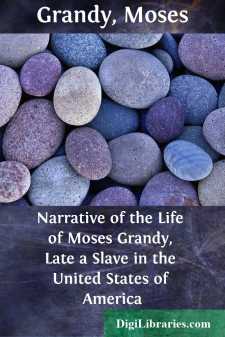Categories
- Antiques & Collectibles 13
- Architecture 36
- Art 48
- Bibles 22
- Biography & Autobiography 813
- Body, Mind & Spirit 142
- Business & Economics 28
- Children's Books 17
- Children's Fiction 14
- Computers 4
- Cooking 94
- Crafts & Hobbies 4
- Drama 346
- Education 46
- Family & Relationships 57
- Fiction 11829
- Games 19
- Gardening 17
- Health & Fitness 34
- History 1377
- House & Home 1
- Humor 147
- Juvenile Fiction 1873
- Juvenile Nonfiction 202
- Language Arts & Disciplines 88
- Law 16
- Literary Collections 686
- Literary Criticism 179
- Mathematics 13
- Medical 41
- Music 40
- Nature 179
- Non-Classifiable 1768
- Performing Arts 7
- Periodicals 1453
- Philosophy 64
- Photography 2
- Poetry 896
- Political Science 203
- Psychology 42
- Reference 154
- Religion 513
- Science 126
- Self-Help 84
- Social Science 81
- Sports & Recreation 34
- Study Aids 3
- Technology & Engineering 59
- Transportation 23
- Travel 463
- True Crime 29
Sort by:
CHAPTER I. MRS. REDWING'S SPECKLED EGG Old Mother West Wind came down from the Purple Hills in the golden light of the early morning. Over her shoulders was slung a bag—a great big bag—and in the bag were all of Old Mother West Wind's children, the Merry Little Breezes. Old Mother West Wind came down from the Purple Hills to the Green Meadows and as she walked she crooned a song:...
more...
by:
Moses Grandy
INTRODUCTION. About a fortnight ago, the subject of the following brief Memoir came to me, bearing with him a letter from a dear friend and distinguished abolitionist in the United States, from which the following is an extract:—'I seize my pen in haste to gratify a most worthy colored friend of mine, by giving him a letter of introduction to you, as he intends sailing this week (August 8th,...
more...
by:
Eugene Lawrence
CHAPTER I. GEOGRAPHY OF ITALY—EARLY INHABITANTS. Italy is the central one of the three great peninsulas which project from the south of Europe into the Mediterranean Sea. It is bounded on the north by the chain of the Alps, which form a natural barrier, and it is surrounded on other sides by the sea. Its shores are washed on the west by the "Mare Inferum," or the Lower Sea, and on the east by...
more...
I AFTER THE VICTORY 1 At these moments of tragedy, none should be allowed to speak who cannot shoulder a rifle, for the written word seems so monstrously useless, so overwhelmingly trivial, in front of this mighty drama which shall for a long time, it may be for ever, free mankind from the scourge of war: the one scourge among all that cannot be excused, that cannot be explained, since alone among all...
more...
The settlement of Englishmen at Jamestown in 1607 was the outgrowth of a vision of transatlantic expansion which had been growing stronger steadily during the preceding generation. It was in the following of that vision that Queen Elizabeth granted to a group of men headed by Sir Walter Raleigh the authority to establish a colony upon the remote shores of the Atlantic ocean, and out of the plans of...
more...
I THE HOLY SYNOD AND TOLSTOI. When Count Tolstoi was excommunicated by the Holy Synod of Russia because "he preached the teachings which are contrary to the Christian faith," the world was divided in opinion and sympathy into two parts. The partisans of Tolstoi were in the majority in the Western world; those of the Holy Synod in Russia and the Orthodox East. Yet Holy Russia rejected Tolstoi...
more...
I had left Sandy MacWhirter crooning over his smouldering wood fire the day Boggs blew in with news of the sale of Mac's two pictures at the Academy, and his reply to my inquiry regarding his future plans (vaguely connected with a certain girl in a steamer chair), "By the next steamer, my boy," still rang in my ears, but my surprise was none the less genuine when I looked up from my easel,...
more...
MARCH, APRIL, AND MAY, 1864. On the 18th day of March, 1864, at Nashville, Tennessee, I relieved Lieutenant-General Grant in command of the Military Division of the Mississippi, embracing the Departments of the Ohio, Cumberland, Tennessee, and Arkansas, commanded respectively by Major-Generals Schofield, Thomas, McPherson, and Steele. General Grant was in the act of starting East to assume command of...
more...
by:
Amy Le Feuvre
I ON THE GARDEN WALL They were sitting astride on the top of the old garden wall. Below them on the one side stretched a sweet old-fashioned English garden lying in the blaze of an August sun. In the distance, peeping from behind a wealth of creepers and ivy was the old stone house. It was at an hour in the afternoon when everything seemed to be at a standstill: two or three dogs lay on the soft green...
more...
by:
Ambrose Dudley
Chapter One. “Hi-lo!” The little boy raised his head with a sudden start. “Hilli—hi—ho! What cheer?” The little fellow started to his feet from where he had been sitting upon a sloping bank, and caught at the bars of the gate close by. He said nothing, but stared through the gloom of the autumn evening at the strange man, who now roared out: “What cheer, I says! What cheer?” The little...
more...











